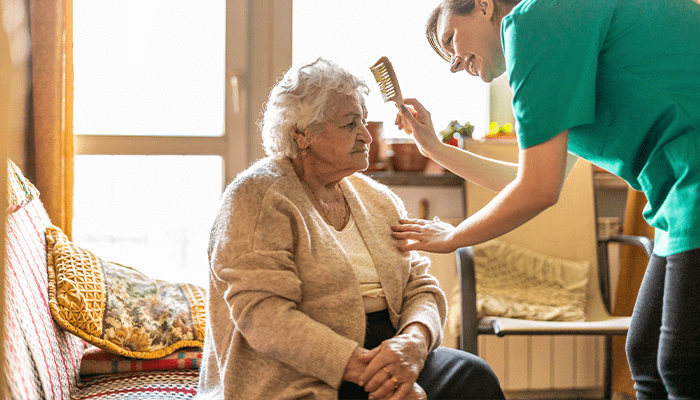
Best Practices for Private Home Health Care Aides in Senior Living Communities
In the senior living space, the question of home health care aides being utilized at a care facility is one that is certain to come up. There are many factors to consider when deciding how to go about interacting with this additional service for residents that it can become overwhelming.
The paramount question at hand is how best to respond to the resident’s desire for this type of outside help, and yet carefully manage the safety and actual or potential liability of the senior living community for errant third-party care, advice, direction, or behavior. And additionally, the community’s role in integrating the third-party’s information, advice, and direction into their responsibility to provide care and how much (if at all) of this they will decide to integrate. You can see the need for a thoughtful approach to these questions as you balance these operational and care issues with the responsibility and liability for how you choose to act.
One thing to ask at the end of the decision-making process: Has the Community carefully evaluated the risk benefit analysis that best supports their decisions?
There is no absolute answer to all the questions and considerations, but a best practice approach which tries to find a balance between the residents right to seek third-party care and support, while simultaneously upholding the community’s responsibilities for care and safety of all residents and staff would include the following:
- Allow residents to bring in third-party caregivers or providers within the resident’s rights as outlined in state regulations.
- Consider a written agreement with any resident who desires to bring in this type of third-party support. The agreement might cover the following:
- Clarity in setting expectations about who is responsible for selecting, paying, and managing the third-party care.
- Be clear whether information from the third-party care giver (therapist) or home health support will go into the care file and be clear what you will do with this information.
- Consider that any information from the third-party care provider or home health support goes through the resident’s physician. An exception would be if there is an obvious or urgent circumstance that needed a response. Additionally, based on the third-party’s information, who will then direct any changes to the community’s care plan: the Director of Nursing, the treating and/or attending physician, the family, or the resident?
- Provisions in the agreement that release and indemnify the community for any harmful acts the third-party provider might cause to the resident or others in the community. Consider such an agreement directly with the outside provider.
- Consider a memo of understanding in a collaborative care plan that outlines what care is provided by whom and all parties sign the agreement.
- Consider a third-party provider “Guidebook” that establishes the community’s expectations. Include the community policies with which the outside provider or Home Health Care Aide must comply. For example: disaster preparedness (fire alarms, tornado warnings, emergency call bell usage), signing in and out of the community, wearing a name badge as any other visitor might do, dining procedures, ordering meals, not allowed to solicit others for services, etc.
- Consider whether the third-party provider participates with nursing, or other care staff, in regular reviews of a resident’s health assessment. Some clients may invite this triage with the third-party providers.
Welcoming the allowance of a third-party home health care aide into your senior living community could offer residents new services that add to the richness of their health and overall wellbeing, but it doesn’t come without some difficult questions being asked and a strong plan of action being put into place. These best practices will help start and guide the conversation. Your AssuredPartners Senior Living team is here to help navigate these decisions. Contact our experienced team to talk through the best plan and course of action for your community.
Featured News & Insights

The next five years will be critical for senior living and nursing home providers. Shifts in health system consolidation, CMS programs, and hospital partnerships are already reshaping how skilled...

Watch the Webinar Replay In this webinar, we’ll explore the structural changes that are adversely impacting nursing home skilled care revenues. This session will briefly touch on the impact of ACO...

If your senior care facility is struggling with survey performance, you may already be on CMS's radar. The Special Focus Facility (SFF) designation is more than just a label. It's a warning with real...